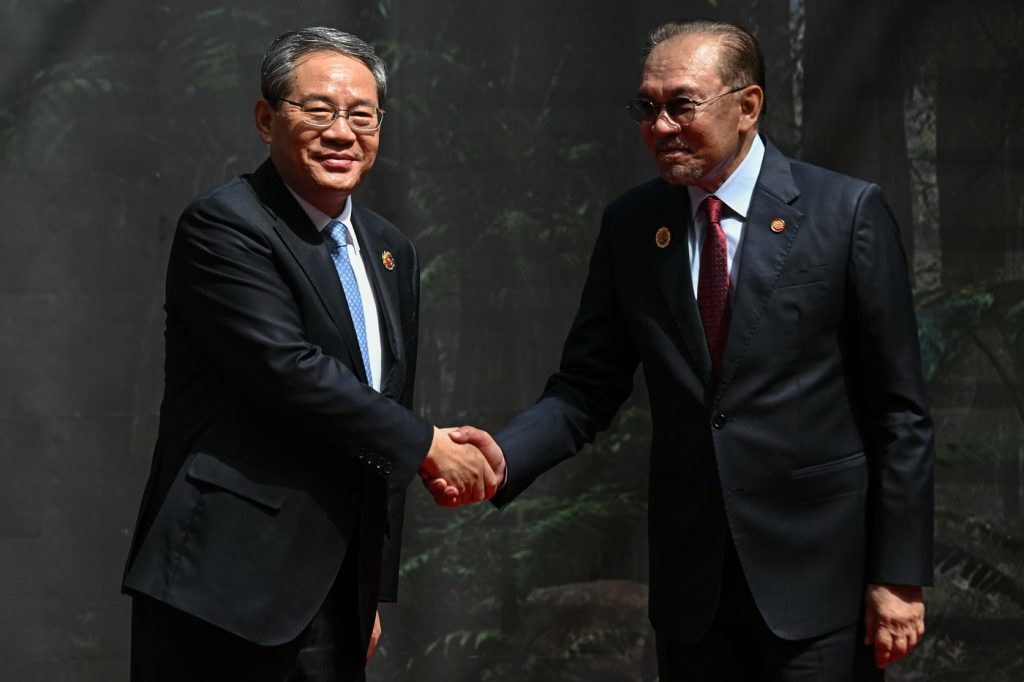KUALA LUMPUR, Malaysia (AP) — Malaysian Prime Minister Anwar Ibrahim opened the East Asia summit, calling on leaders from the Asia-Pacific region to prioritize dialogue over coercion and cooperation over confrontation. His remarks come at a time of escalating tensions between the United States and China, framed within the context of the summit that involves the Association of Southeast Asian Nations (ASEAN) and its key partners, including Australia, China, India, Japan, New Zealand, South Korea, Russia, and the United States.
During his opening speech, Anwar emphasized the need to renew collective objectives and promote principles of forward-looking engagement. He reiterated the importance of dialogue over coercion and reaffirmed commitments to global peace, security, multilateralism, and international law. The summit is significant as it rolls out shortly after U.S. President Donald Trump's visit to Malaysia, where he participated in ASEAN summit meetings and witnessed the signing of multiple economic agreements aimed at strengthening trade ties and reducing dependence on China.
On the day of the summit, Trump also attended a ceremony celebrating the formal expansion of the Cambodia-Thailand ceasefire, a peace initiative previously brokered by Washington. Analysts anticipate that discussions during the East Asia summit will largely focus on key issues, such as tensions in the South China Sea, the resilience of regional supply chains, and ASEAN's response to the ongoing conflict in Myanmar.
The U.S. delegation is expected to advocate for principles like freedom of navigation and economic security while adopting a transactional approach to alliances and trade. This approach is designed to position the United States as a reliable partner for regional stability in the Indo-Pacific. In contrast, China, represented by Premier Li Qiang, is likely to emphasize themes of sovereignty and noninterference, highlighting the benefits of connectivity through initiatives like the Belt and Road project.
The ongoing rivalry between the United States and China will undoubtedly shape the discussions, affecting various topics from security to trade. Nevertheless, ASEAN aims to maintain a neutral stance, emphasizing regional cooperation while refraining from overtly taking sides. Analysts predict the 20th East Asia summit will be marked by notable agreements related to the peace deal and recalibrating U.S. trade relations with Southeast Asia.
In his speech, Anwar expressed support for Trump's initiatives aimed at resolving the Gaza conflict but stressed the need for a more comprehensive political solution that ensures justice for the Palestinian people. He also voiced concerns over North Korea's recent ballistic missile launches, advocating for engagement across various global issues, including Gaza, Ukraine, and Myanmar.
Regarding the situation in Myanmar, Anwar reaffirmed ASEAN's commitment to its 2021 Five-Point Consensus, which promotes peace and dialogue in the wake of Myanmar's military takeover. While he did not directly comment on Myanmar's planned general election, he noted that fighting has decreased and that continued engagement is vital.
When discussing territorial disputes in the South China Sea, Anwar insisted that such tensions should be addressed internally by ASEAN and its partners. He urged for a "Code of Conduct" to govern behavior in these contested waters and cautioned against the risk of escalation due to outside pressures, calling for adherence to international law.
Prior to the East Asia summit, ASEAN members and five partners, including China, Japan, South Korea, Australia, and New Zealand, convened a leaders' summit centered around the Regional Comprehensive Economic Partnership (RCEP). This marks the first summit since the accord was signed in 2020, which seeks to enhance regional economic integration and bolster supply chain resilience. Leaders involved in the RCEP expressed their determination to strengthen multilateralism and committed to enhancing the implementation of the agreement amidst global uncertainties.
Doris Liew, an economist specializing in Southeast Asian development, characterized the RCEP as a "practical hedge against U.S. tariff shocks." Despite its perceived looseness compared to other regional trade agreements, she indicated that the partnership could facilitate trade diversification and help mitigate exposure to unilateral U.S. actions.










